I create manually my GUID for storing it to database like so
Guid EmailToken = Guid.NewGuid;
I tried to store it in an uniqueidentifier field of SQL with LINQ like
using (DBDataContext DB = new DBDataContext()) {
Member M = new Member { ActEmlGuid = EmailToken };
DB.Members.InsertOnSubmit(M);
DB.SubmitChanges();
}
Unfortunately the SQL now has a different GUID than the one i created. Why is this happening? How can i overcome this? I do not want SQL to create the GUID for me.
And here are the properties of the SQL field

